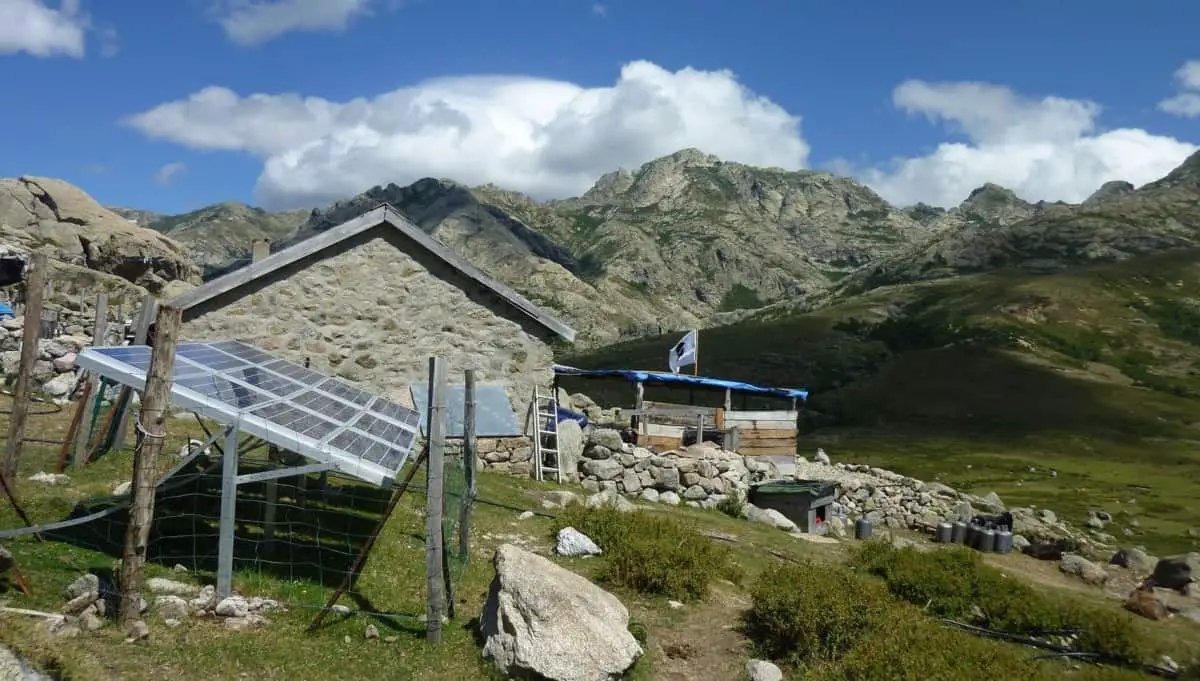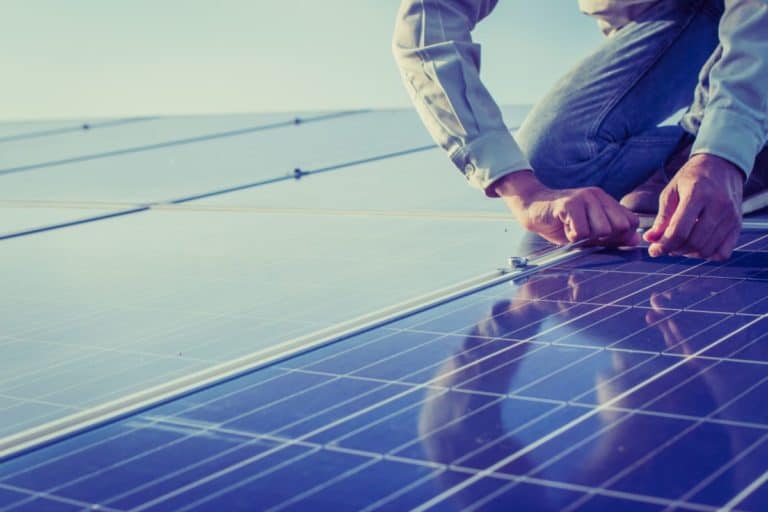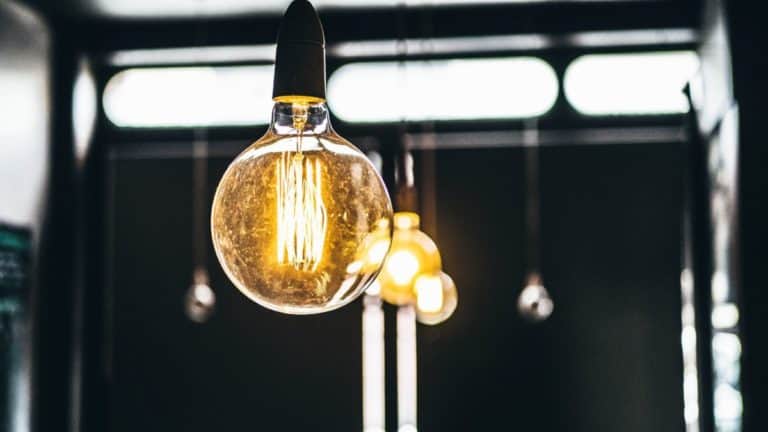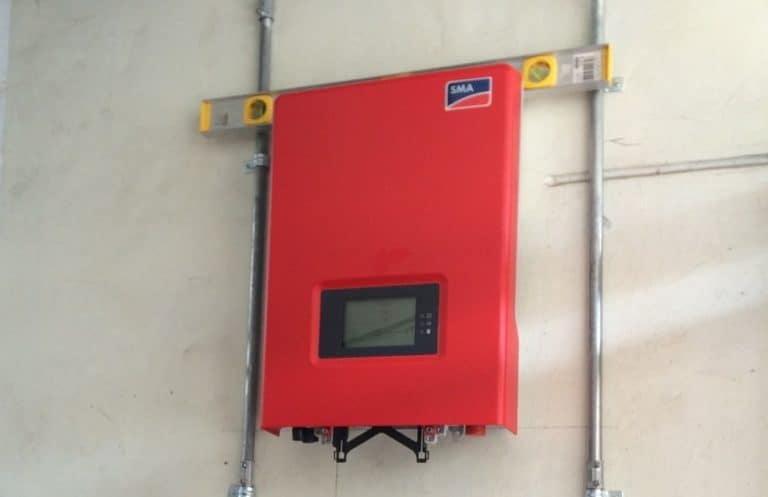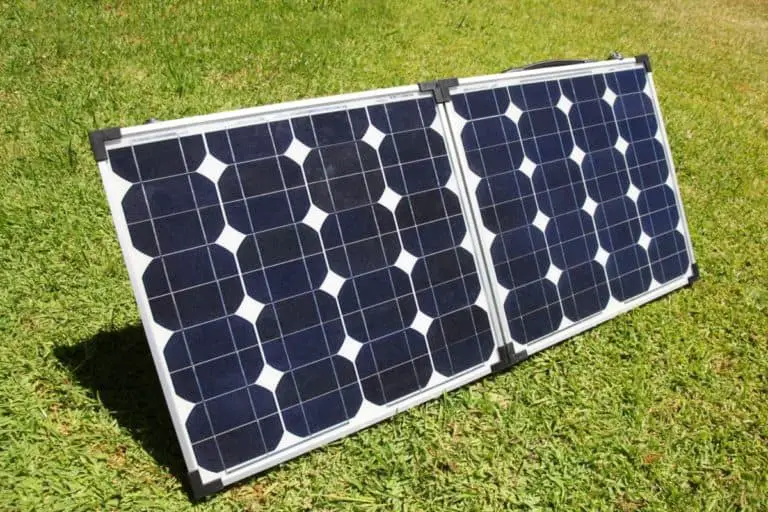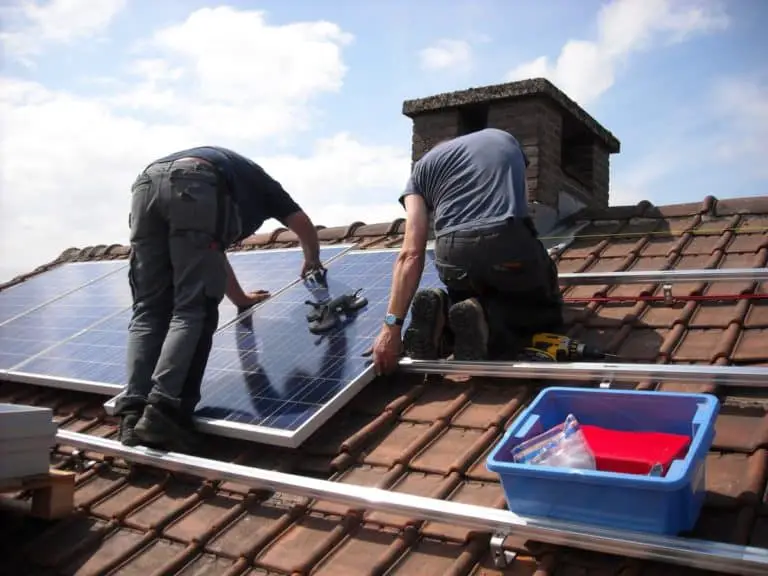What does ‘off-grid solar’ mean?
When considering solar panels, you may find yourself wondering what ‘off-grid solar’ actually means.
‘Off-grid solar system’ means a system of solar panels detached from any electrical utility. They usually include solar panels, batteries, an inverter, and a charge controller and are used to power a home or several appliances. An off-grid system is often chosen by those who want to become more self-reliant.
Off-grid solar systems are ideally suited to people living an off-grid lifestyle, but they don’t suit everyone. Let’s take a closer look at the details to see if an off-grid solar system is right for you.
You might also like to read: What is the difference between off-grid and on-grid solar panels?
Table of Contents
The benefits of an off-grid solar system
People living in remote areas that cannot be served by an electric utility often use off-grid systems. Still, now, more and more people are disconnecting from an existing utility provision by choice. What is it that attracts them to this type of system?
You can use all the power you produce
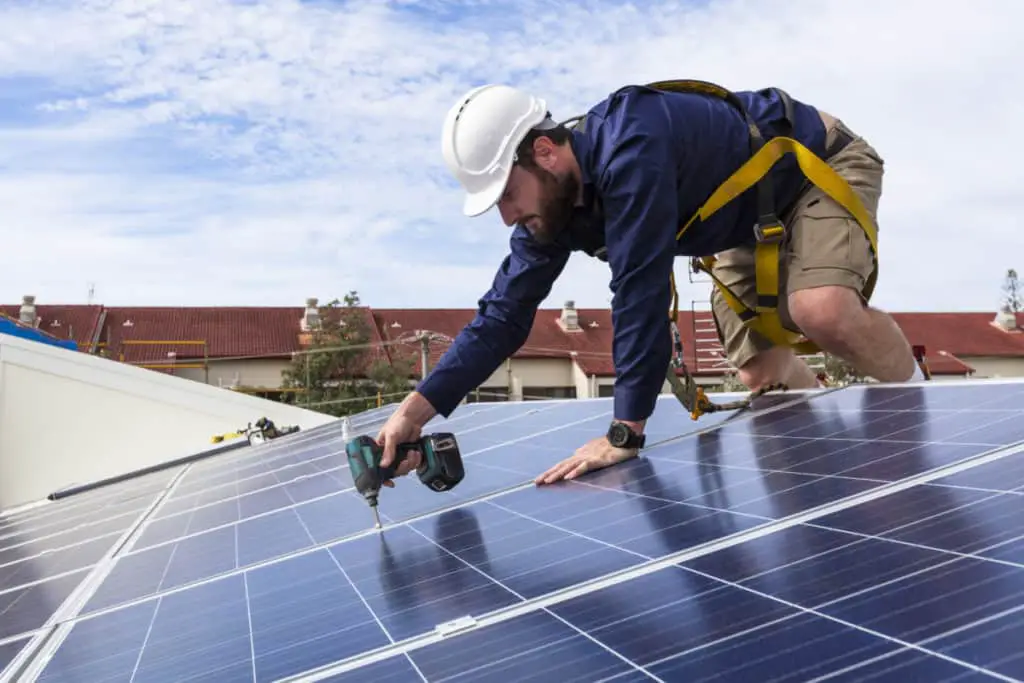
Meeting all your electrical needs with solar panels can be achieved with both off-grid systems and those still connected to the grid. However, with an off-grid system, you get to use all of the power produced.
Homeowners who tie their solar panels to the grid return any excess energy to a network of other local homes. But, those who have an off-grid system store it for later use. Battery banks are used to keep any excess energy as a backup for emergencies or cloudy days. Often, off-grid systems are designed to produce more power than is needed at one time, so extra can be harvested.
If you’re thinking about buying solar panels, check out my recommendations.
You are not at the mercy of rising energy prices
Energy prices have risen steadily for the last decade and have a significant impact on the cost of living. Once you’ve installed your off-grid system, you won’t be paying anything to utilities.
Once you’ve paid for the parts and installation, in most cases, the only ongoing costs will be maintenance and any insurance. This makes your finances less reliant on shifting energy prices and will allow you to better budget your income in other areas.
You won’t suffer blackouts from unreliable utility systems
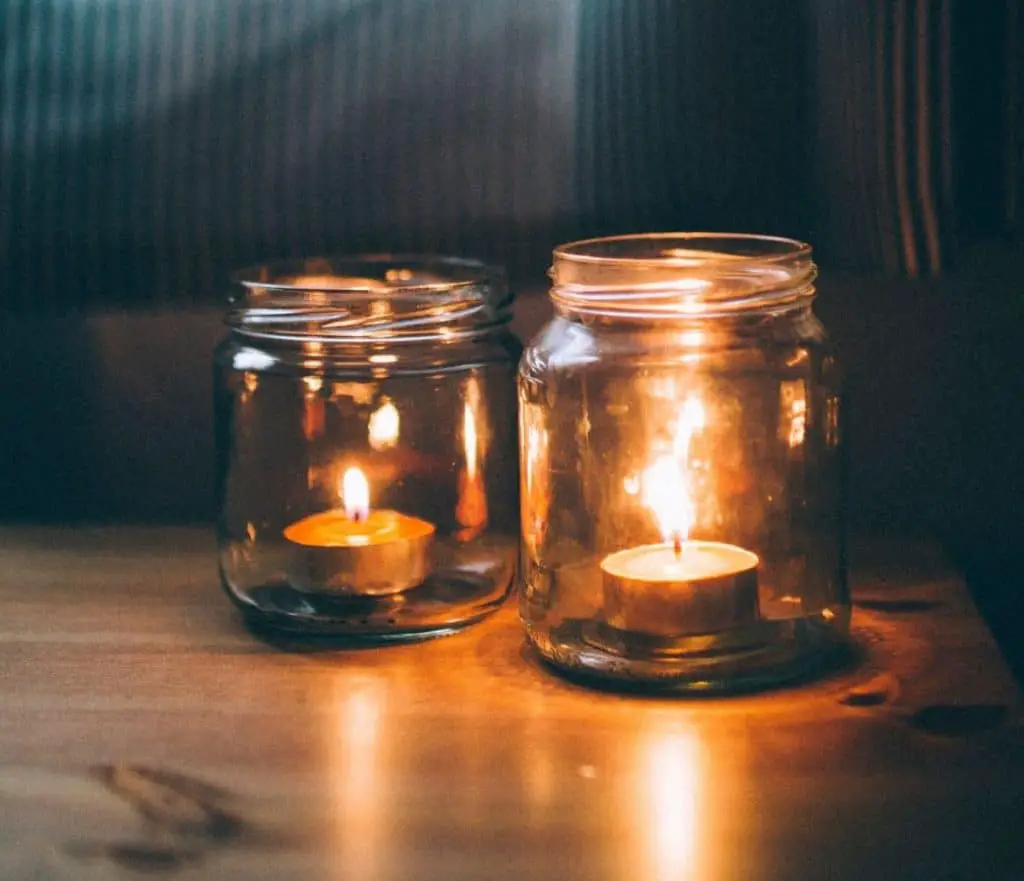
In recent years, as the nation’s utility grid has rapidly aged, power supplies have become unpredictable, and outages have become more regular. Not only are they inconvenient, but they can pose a significant risk to our families. Blackouts mean security systems fail, they cast public areas into darkness, and older people are unable to call for help.
With an off-grid solar system, you can provide backup systems, which, if prepared correctly, can prevent the likelihood of any blackout. The use of battery banks and generators means that you can prepare for cloudy days or maintenance work, allowing you to carry on as usual.
The cost of solar batteries is decreasing
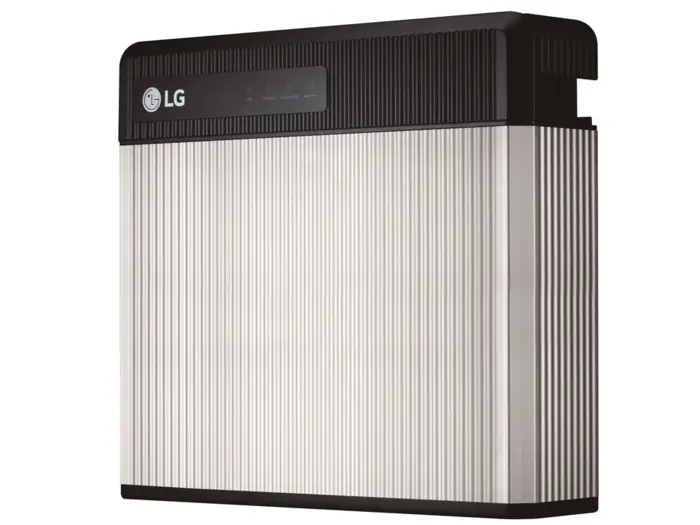
The price of battery power storage fell 35% last year and shows no sign of stopping. Many large companies like Tesla, Duracell, and LG are creating products to join the market. As technology improves, high-quality battery solutions are easier to find and cheaper to buy.
The price of battery storage has a significant impact on the overall cost of an off-grid solar system. The upfront cost of an off-grid system is higher than those tied to utilities, and that is mainly down to the cost of batteries.
For an off-grid system to provide enough power all year round, it needs to have the capacity to store enough energy for times when the sun is not falling directly on the panels. In some areas, this can be for weeks at a time. To provide enough storage for this eventuality, you either need lots of batteries or a few larger units. Now, with lower prices and more options, this is more achievable.
Related reading: What is the best battery for a solar power system?
The drawbacks of off-grid solar
Despite there being several benefits, off-grid solar systems are not without risks:
Homes with off-grid solar panels aren’t eligible for financial incentives
In some states, homes using grid-tied solar panels get reductions in bills and taxes related to how much power they produce. The system can automatically divert any excess energy it creates to be sold back to the grid.
In most areas, energy is sold back to the grid at the same price that they provide it. However, utilities in some states have taken advantage of the situation by paying a lower rate for the power bought back from homeowners.
You may not be able to produce or store enough power
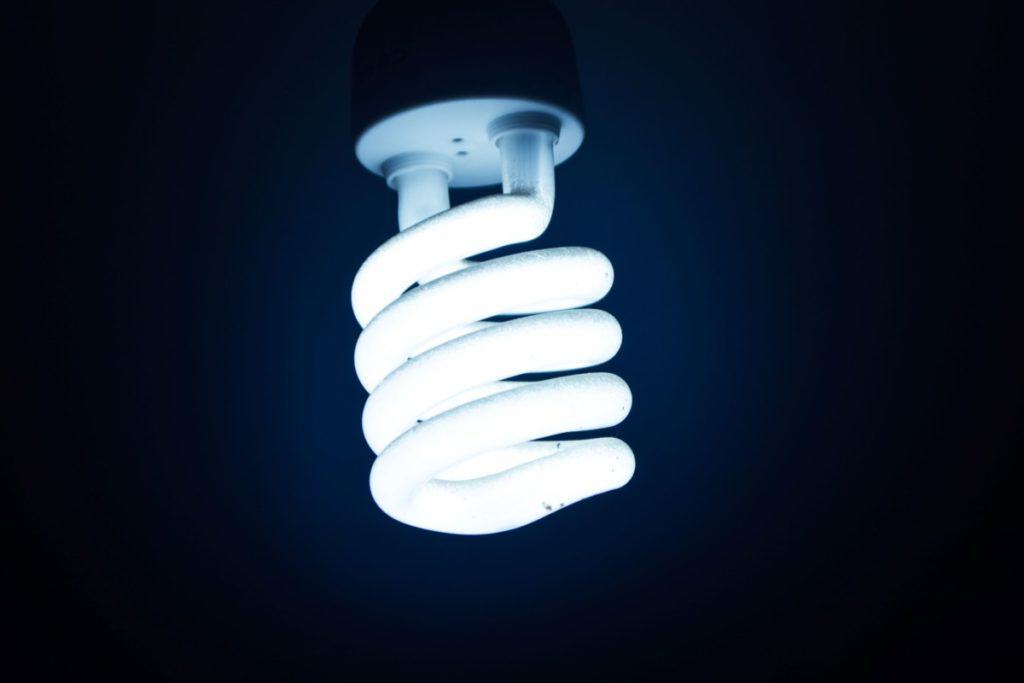
To provide enough power for your home from your panels requires a large surface area of photovoltaic cells and regular sunshine. To power your appliances during cloudy days or at night time, your system needs to store excess electricity.
You also need enough for several days to cover lousy weather or electrical faults. To save this amount requires a considerable amount to be produced and a significant battery bank. Both elements can be expensive.
To account for this, many homes make changes to reduce the total energy use of their home. They switch to low power appliances and alter their lifestyle to save electricity.
You’re not contributing to the grid
Selling excess power back to the network, not only earns you money but helps your wider community. By giving back in this way, you are increasing the overall power in the grid. The more people that do this, the higher the proportion of renewable energy is used by the system.
Off-grid systems are more expensive
Because of the amount of storage required, the initial set up of an off-grid system can cost more. You are also heavily reliant on batteries, which can last between 2 and 15 years, meaning you need to replace them regularly.
Also, because more set up is required in your home, the installation can be more complicated. Unless you are a competent electrician yourself, this could mean having to pay for a costly installation.
What is included in an off-grid solar system?
Each off-gridder tailors their system to fit their needs and environment, but some components are common in all off-grid solar systems:
Solar panels
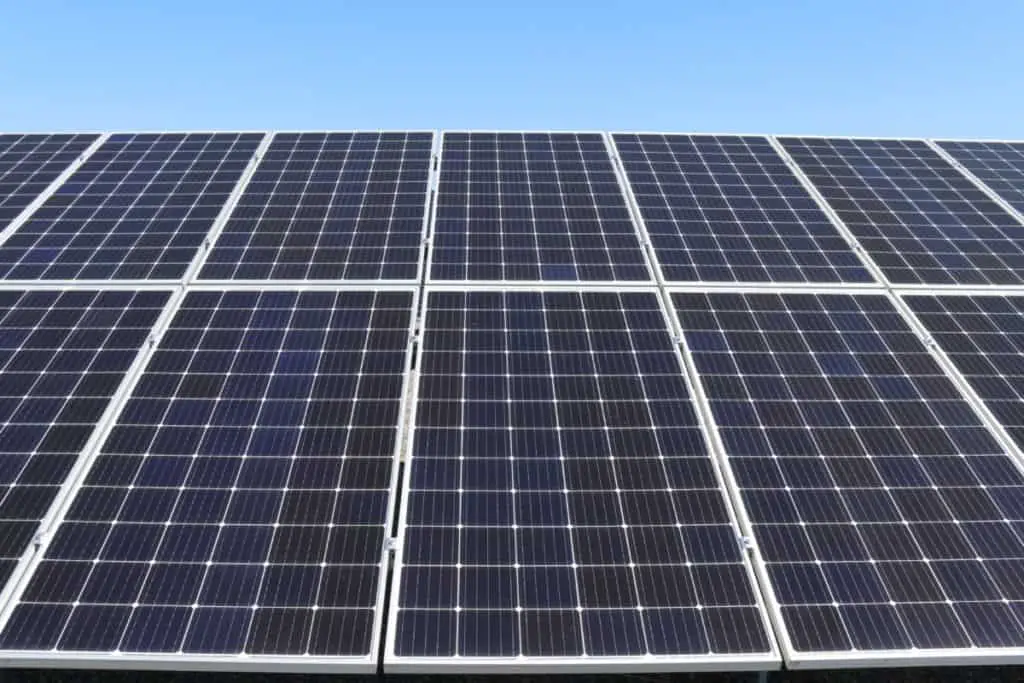
These are the flat panels that collect the sunlight and convert it into electrical energy. Panels used in off-grid systems are identical to those used on-grid. They must be positioned carefully so that the maximum sunlight falls on them throughout the year. Most people choose to install them on their roof because it provides an appropriately inclined flat surface.
Batteries/Power storage
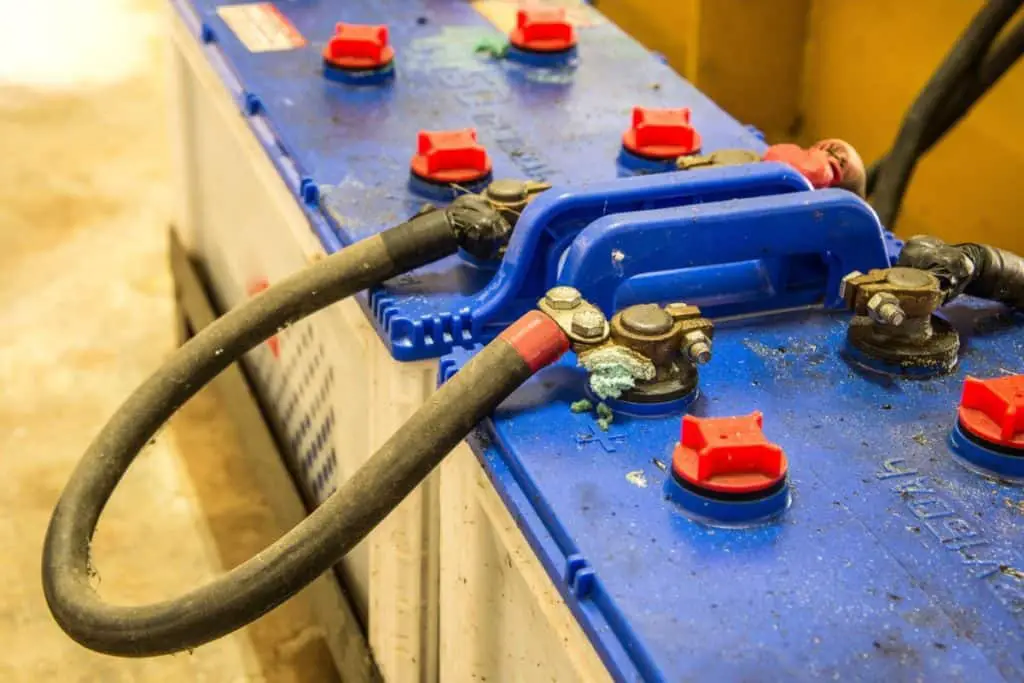
Batteries are an essential part of an off-grid system and provide you with a critical backup for times when the sun isn’t shining. Because they are often in constant use over long periods, deep cycle batteries are used. They are usually either Lithium-Ion batteries or lead-acid batteries. Large numbers of 12v batteries are often wired together to form ‘battery banks, ‘ which provide more significant storage.
More recently, more substantial, single-unit battery packs are available. Like the Powerwall 2 from Tesla, they are large, super-efficient batteries that can be used instead of banks of smaller units.
Solar inverter
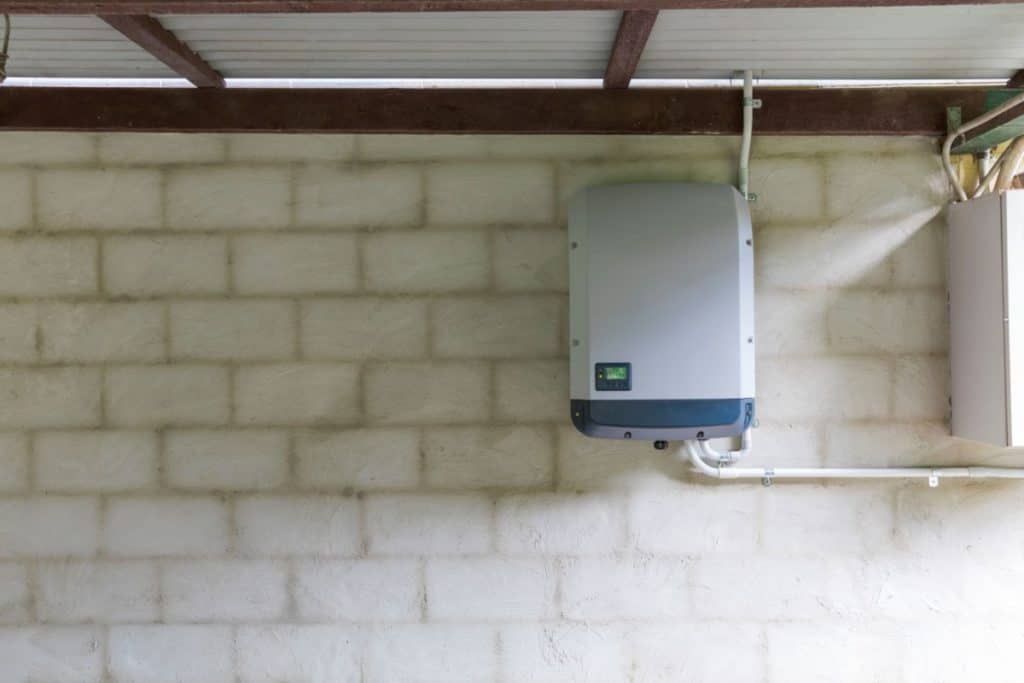
Solar panels convert light energy and turn it into direct current (DC). Alternating current (AC) powers most household appliances, so you need to add an inverter to the system. It acts as a converter to change the electricity from DC to AC for use in your home. Those used in off-grid systems are designed specifically for that use and can standalone.
Related reading: Guide to off-grid solar inverters.
Solar charge controller
A solar charge controller sits between the inverter and the battery. It controls when excess energy is sent to the battery and charges it in a way that best suits the battery. If a battery is used correctly, its life is extended. By controlling the voltage and current as the battery charges, this component can extend its life and prevent you from having to replace it early.
Related reading: How to choose an off-grid charge controller.
Do you need a generator for an off-grid solar system?
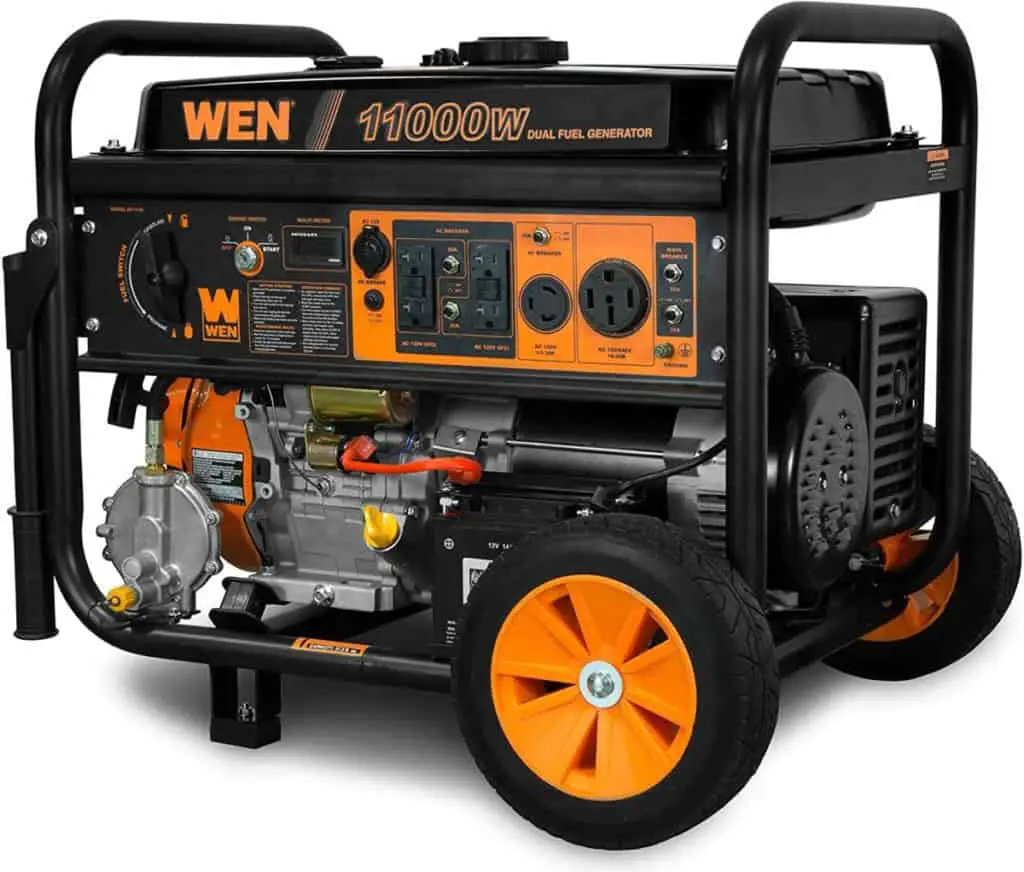
Because solar panel systems are reliant on the weather and your storage capacity, there are times when a run of bad weather may leave your batteries empty. At this point, it is useful to have an alternative energy source, such as a backup generator. You can use generators to charge your batteries when they get low, so you always have power, no matter the weather.
Many people who live with off-grid power systems say that success depends on preparation and sufficient backups.
Conclusion
In an increasingly uncertain world, off-grid solar systems offer you a source of electricity that you can control yourself. It’s renewable, and once you’ve paid for the parts and installation, it’s free.
While they have many benefits, off-grid solar panels have their fair share of drawbacks and are not suited to everyone. Before you decide which system is for you, look at the amount of power your home requires, the hours of sunlight received in your region, and use a calculator like this one at Wholesale Solar to work out what you will need to install. This will allow you to make the most informed choice.
Check out my recommendations for equipment that will help you take your home off-grid.
My Off-Grid Product Recommendations
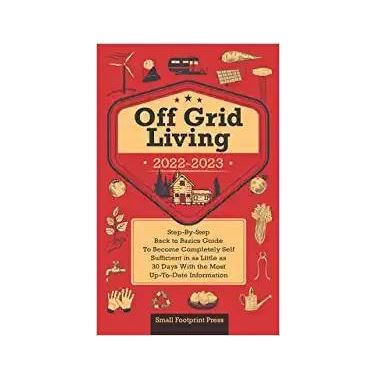
Useful Book: Off Grid Living 2022-2021 – This incredible step by step guide is a great read and gives you useful information about reaching self-sufficiency in just 30 days. Get the paperback on Amazon or read it free with a Kindle Unlimited subscription or listen to the audio version with Audible Plus membership.
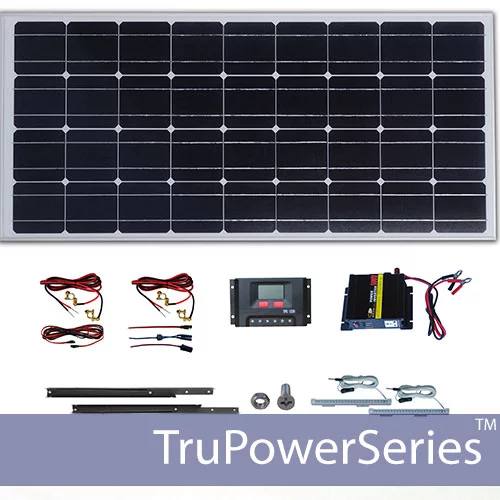
Small Solar Panel Systems: Silicon Solar – This is an excellent company that offers lots of products to get you started on your solar journey. Visit Silicon Solar.
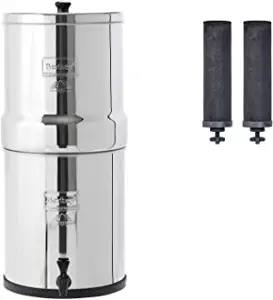
Family Water Filter: Big Berkey – For a fast, affordable water filter with no plumbing required, you can’t beat a Big Berkey gravity-fed filter like this one from Amazon.
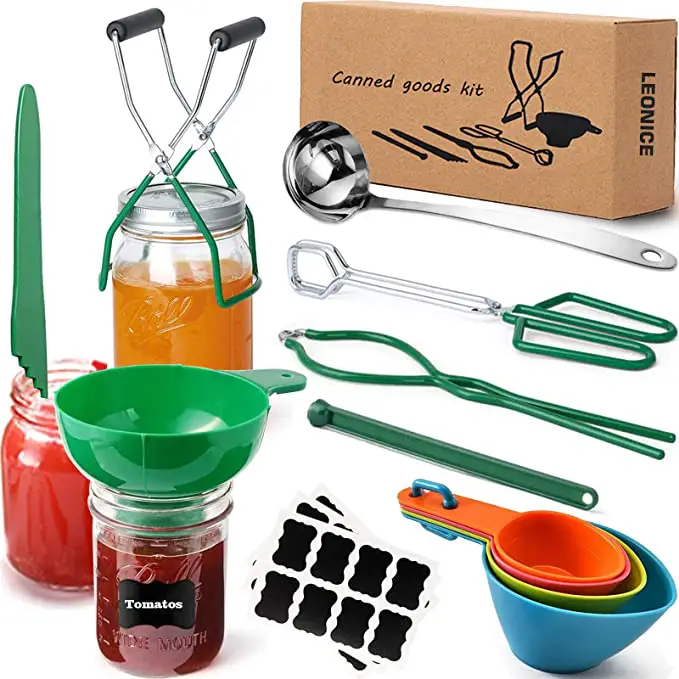
Canning Equipment – This canning starter kit, 22-quart Barton pressure canner and twelve-pack of Ball 16oz mason jars will help you preserve food as you work towards self-sufficiency.
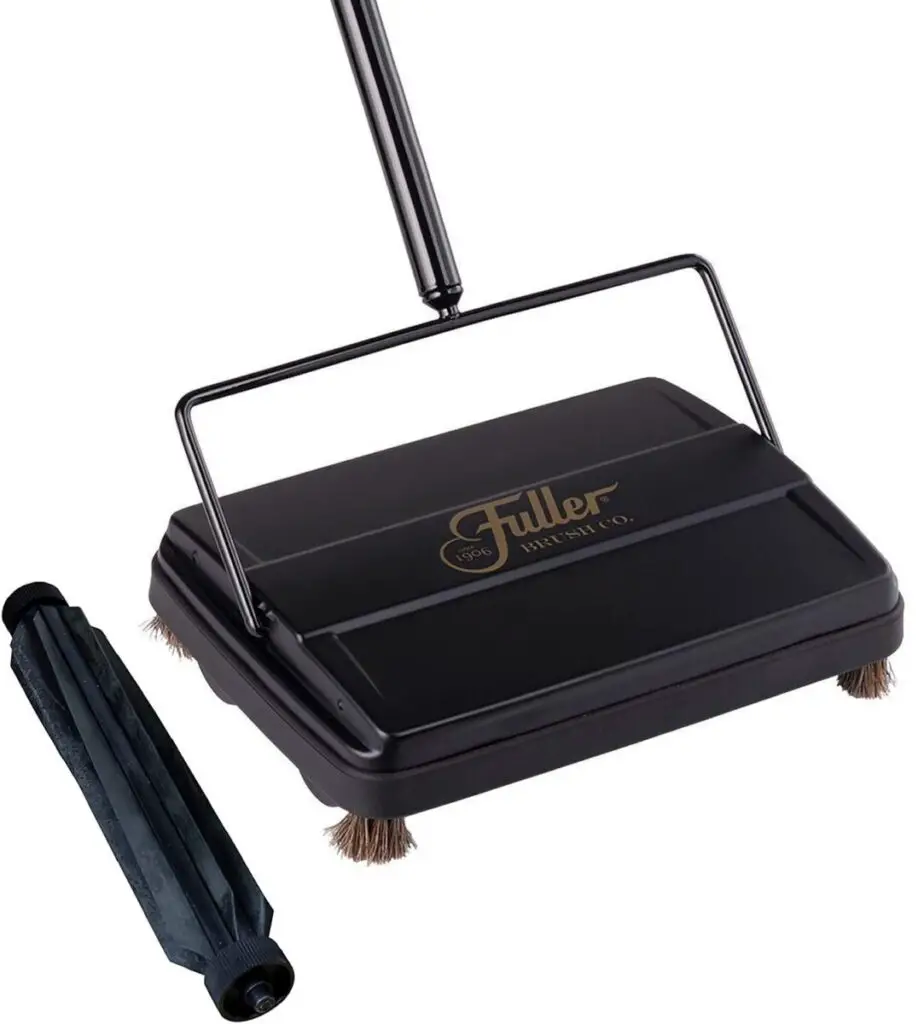
Cleaning: Fuller Carpet Sweeper –. This carpet sweeper is an ideal way to keep your home clean without using up your energy stores on vacuuming.

Handy Knife: Gerber Serrated Paraframe – This handy all-purpose knife is lightweight and ideal for all those little jobs around your home and garden.
